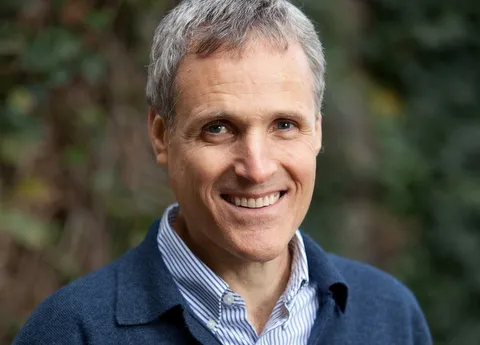The event that I’m looking forward to most in the Olympics is on Sunday, when the men run the marathon. I’m particularly interested in both of the Americans: Meb Keflezighi, silver medalist at the Athens Olympics, who won the U.S. trials in January with a personal best—at age 37. Then there’s Ryan Hall, who has been unapologetic about crediting his coach: God.
According to a lengthy profile in The New York Times, when Hall had to list the name of his coach on a form after a 2011 half-marathon, he wrote, “God.” “You have to list the name of a real person,” an official said. “He is a real person,” Hall responded.
What does it mean to have God as your coach? How do you structure workouts when you’re taking your clues from the divine? For Hall, it means taking one day off a week from running, a Sabbath; as a result he trains at only 100 miles a week, rather than 120.
Every seventh week he runs only once a day instead of twice, a reference to Exodus 23:11, where the Israelites were told to leave their fields fallow every seven years. He rubs his tired muscles with anointing oil and does his most rigorous workouts every three days, honoring the Trinity and Jesus’ resurrection on the third day.
Making God your coach means paying closer attention to the Bible and looking for how it speaks in your life. It also means listening closer to God. Hall talks to God and leans on God as he runs. Those are times he feels closest to God. He gives his prize money to a foundation he started with his wife. Moreover he knows the joy of praising God as he runs. During the 2011 Chicago Marathon, he and a Kenyan runner sang, “Come Lord Jesus, come” as they ran.
With God as your coach, doesn’t it mean you have to win? I’m not sure that’s the point for any of us who turn to God as a coach. What I get from Hall is that sense of security when you know your coach really believes in you. Heck, that’s available to all of us, Olympians or not.
After a devastating tenth-place finish in the 2008 Olympics, Hall has grown a lot and learned a lot. “I don’t see failure as a negative thing at all anymore, which is a huge shift for me,” he told Times reporter Jeré Longman. “I just see that as a part of my training, my process, learning, experimenting, getting it wrong so that I can get it right.”
Wow, that’s a pretty godly way of seeing things. Would that I could have the same attitude. But then, as Hall’s example has made clear, his coach is available for any and all of my workouts.





